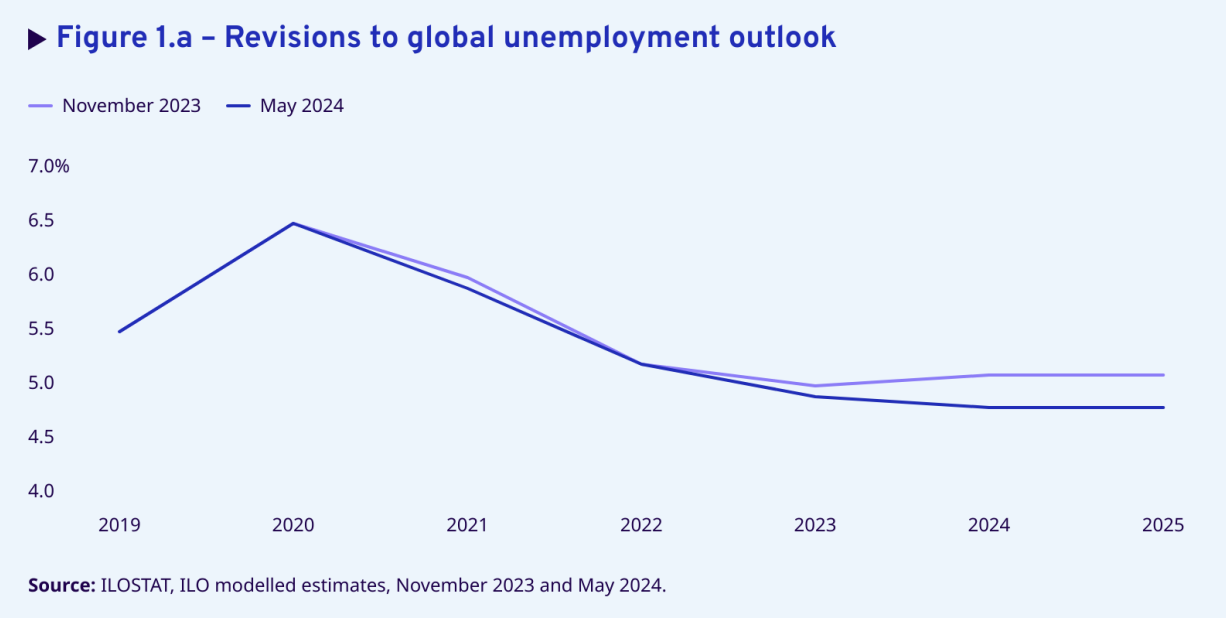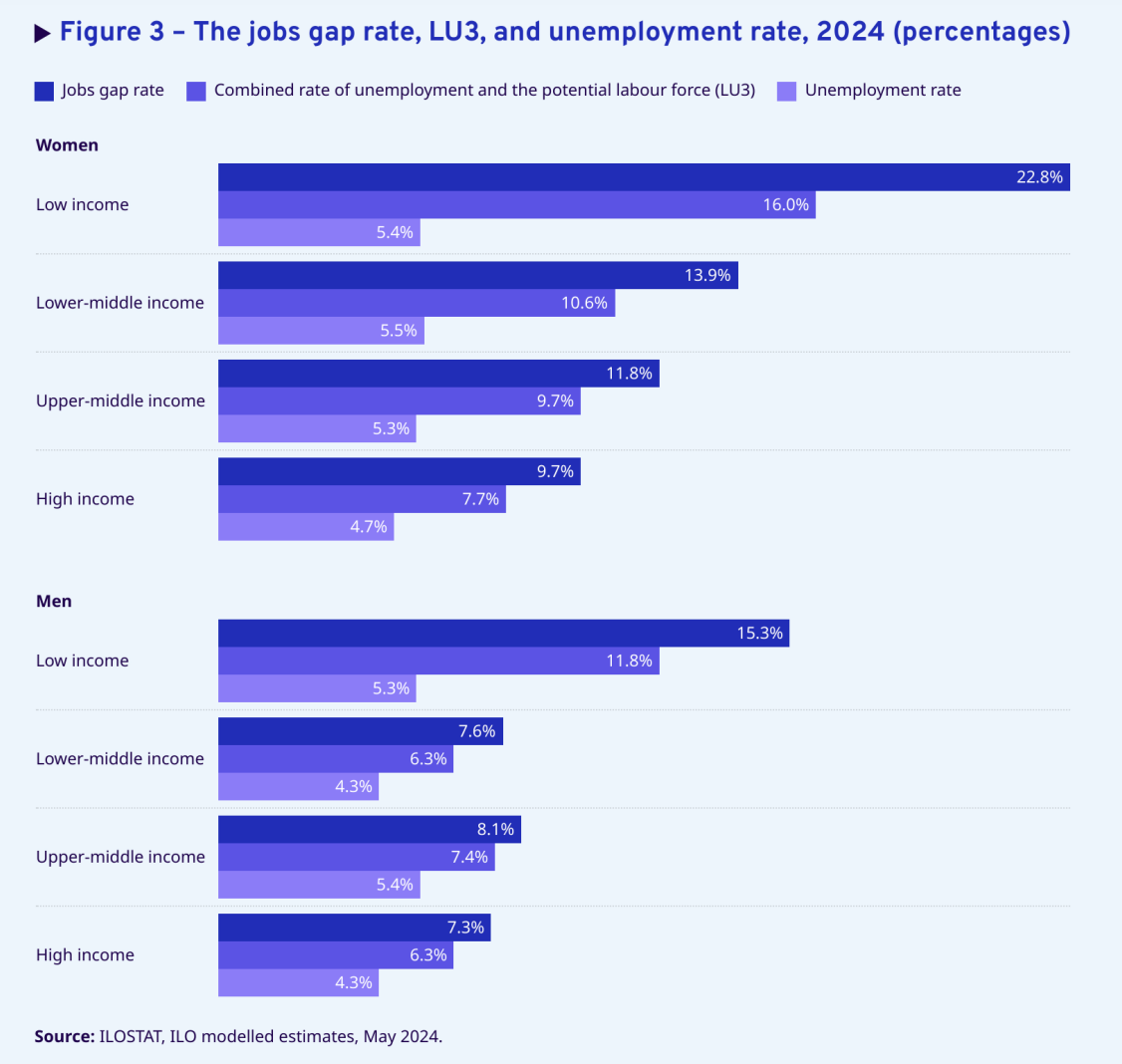
Revision due to 'macroeconomic stability,' lower-than-expected unemployment rates worldwide

The International Labour Organisation (ILO) is projecting global unemployment to decline to 4.9% in 2024, following previous estimates that it would increase.
The 4.9% prediction is down from five per cent global in 2023, and a downward revision of the previous projection that it would go up to 5.1% this year.
In its latest World Employment and Social Outlook report, the ILO attributed the revision to "recent macroeconomic stability" and incoming labour market data.
"This revision derives mainly from lower-than-expected unemployment rates in China, India, and high-income countries.”
It noted, however, that this downward trend in unemployment rate will flatten, with the 4.9% global unemployment projection to remain until 2025.

In the same report, the ILO also noted that the jobs gap is currently at 402 million people in 2024. This measures the number of persons without a job but who want to work.
This underscores a persistent lack of employment opportunities, according to the ILO.
"The lack of progress in further reducing labour underutilisation is worrying as employment deficits are still large," the ILO said in the report. "Moreover, these deficits are unevenly distributed, with larger gaps in developing countries and for women."
The job gap for women in low-income economies have reached 22.8%, much higher than the 15.3% for men.
The jobs gap for women slightly narrows to 9.7% for high-income economies, but they remain behind the 7.3% jobs gap for men.

Gilbert Houngbo, ILO director-general, said the report reveals "critical employment challenges" that need to be addressed.
"Despite our efforts to reduce global inequalities, the labour market remains an uneven playing field, especially for women," Houngbo said in a statement.
To address the issue, the ILO director-general said the world should work towards inclusive policies that consider the needs of all workers.
"We must place inclusion and social justice at the core of our policies and institutions. Unless we do, we will fall short of our objective to ensure strong and inclusive development," he said.